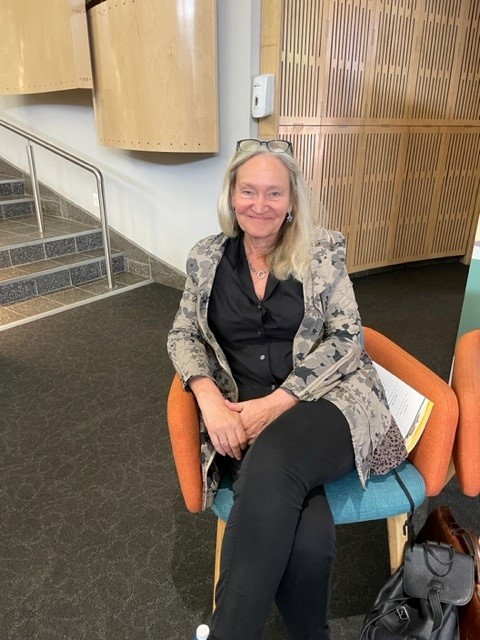News
Can grants help combat unemployment? Insight from the SA-TIED and Econ 3x3 policy debate
How do we tackle unemployment in South Africa? Is there a role for well-designed grants to complement active labour-market policies? The second of these questions was the central theme in the first of a series of policy debates in late June hosted jointly by Econ3x3 and SA-TIED.
SA-TIED, an independent research project to support evidence-based policy, is a programme of the National Treasury supported by UNU-WIDER. Econ 3X3 is an independent online economic policy newsletter that grew out of the REDI3x3 project, which was also supported by the National Treasury to garner evidence on the country’s key challenges: unemployment, poverty, and inequality.
The debate was attended by about 100 people at the Future Africa campus at the University of Pretoria, and by 200 online. Expert panelists who participated in the debate included Michael Sachs, former head of the Budget Office in the National Treasury and currently at the Southern Centre for Inequality Studies at the University of the Witwatersrand, Dr Kate Philip, programme lead of the Presidential Employment Stimulus, Dr Haroon Bhorat, director of the Development Policy Research Unit at the University of Cape Town (UCT), Sibusiso Gumbi, director of macroeconomic policy at the National Treasury, Amanda Rinquest of the Black Sash, and economist Dr Thabi Leoka, managing director of Naha Advisory. Both Bhorat and Leoka are also members of the President’s Economic Advisory Council.
In a lively discussion, both Sachs and Philip warned against seeing interventions to promote employment as a set of “binary choices”. Philip said it was key to address hunger: “But work matters and participation in work matters, whether it’s in private markets, public employment, or the informal sector.” Sachs warned about the debate being reduced to a binary between the “developmental state” and the “welfare state”.

Bhorat pointed out that after 1994, the government had done “all the right things” in terms of allocations to the poor, such as electrification and water provision, as well as the ramping up of social grants. However, a central question in this debate was whether the Social Relief of Distress grants introduced during the COVID-19 pandemic, had had a positive effect on employment. Although econometric research indicated this was the case in the short-term, there was no evidence that they had an impact in the longer term, he said.
It was important then to reconsider where such social grants were aimed. Rather than only to households, they should also be directed to “firms”, particularly in the informal sector, or small, medium and micro-enterprises (SMMEs). He pointed out that our informal sector is remarkably low compared with other developing countries, where the ratio of wage employment to informal employment to unemployment was 45:45:10. In South Africa this ratio is 50:16:34
Philip said the informal sector was hampered because there was limited space for it to grow in rural areas due to the legacy of land dispossession. She said this history also meant that such jobs as domestic work were generally in the formal rather than informal sector. “We face real structural challenges to growth so there is a strong case for social provision of employment. Employment should not be left to markets alone.”
Partly in response to Bhorat, Sachs said it was correct that the post-apartheid government made an effort to redistribute assets, but “nothing was done to address the structural inequality of wealth.” The budget had gone as far as it could in terms of addressing inequality of income. But choices in spending need to be made carefully because falling national income meant “we are going to have a continuous fiscal squeeze.”
The Treasury’s Gumbi put some numbers into perspective about expenditure on grants. He said that the R36 billion allocated to the SRDs was bigger than the entire line items on courts and prisons, sports, arts, and culture, and nearly the entire amount allocated to housing in the 2022/23 financial year. He said the increase in value-added tax (VAT) rate in 2018, which had not been done “lightly”, was intended to raise an additional R36 billion in revenue “but we collected R13bn less revenue than projected because of the economy. We need to ask how easy it will be to raise that revenue.”
Thabi Leoka warned about the increase in public debt from R500 billion in 2006 to R4,7 trillion today. South Africans need to ask the government: “What is it you have done with all this money?” Much, she suggested, has been misallocated. A recent Treasury document highlighted several “small changes” to improve the economy “, for instance an emphasis on network industries and on the railway system, both freight and passenger. These would be a “huge enabler for work” by cutting the costs for those looking for it. But since the document was published, she said, “we have actually regressed”.
Amanda Rinquest of the Black Sash said numbers “didn’t matter” to her. “Our holy book is the Constitution – that’s how we look at the policy debate… Section 27 of Constitution says every single person who is unable to provide for themselves must be given some form of social assistance.” She said a basic income grant needs to be set at least at the lower-bound food poverty line and should form part of a “social protection floor”, which includes school meals and affordable transport.

However, for other panelists the numbers mattered. Leoka pointed out that the significant increase in public debt did not reflect in better services or in gross domestic product (GDP) growth. And even though the budget itself was the most redistributive of emerging markets, “a lot of money spent in this country, is just spent badly.” United Nations University rector, Tshilidzi Marwala, and Kunal Sen, director of United Nations University World Institute for Development Economics Research (UNU-WIDER) and SALDRU director, Murray Leibbrandt, made opening and closing remarks at the debate.
 Join the network
Join the network